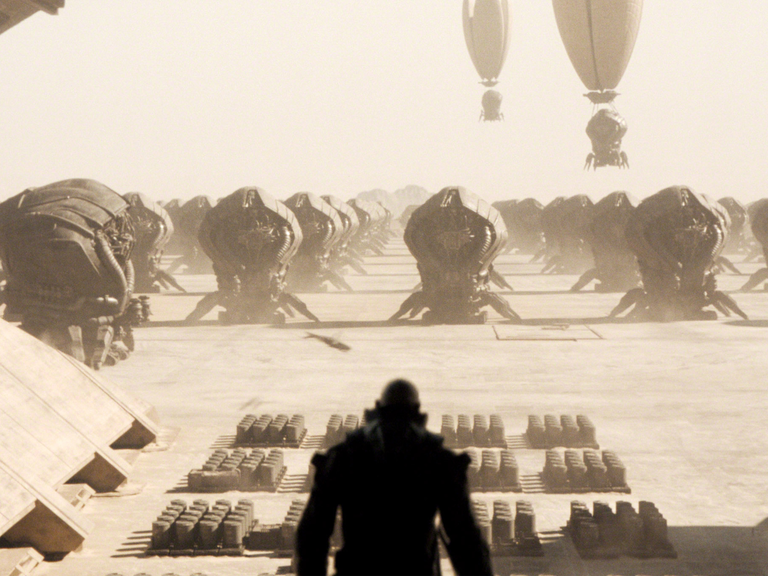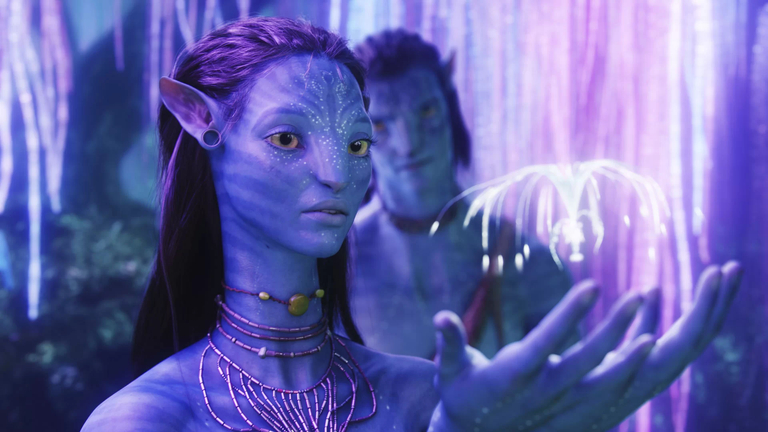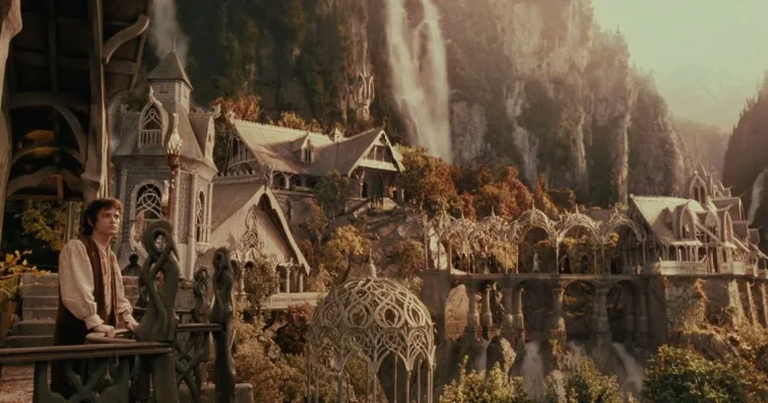Modern Visual Effects In Film - Is There Too Much Reliance On Computer Generated Imagery (CGI)?
Following on from yesterday's post in which I explored early visual effects in photography and filmmaking, for this post I want to make a start at evaluating the use of modern visual effects in film.
The film industry of today of course looks very different when it comes to visual effects. It now takes advantage of very sophisticated techniques and state of the art technology to create visually impressive films. The digital era has heralded a massive transition to computer generated imagery, or CGI, and the graphics capabilities are now beyond what many could have once possibly imagined.
Technology Evolution
As technology continues to evolve so too will special effects and computers will become ever more integrated into the film industry. There can be no doubt that without these powerful digital tools there are some films which simply could not be made.

(A remake of the film Dune was released in 2021 and won an Oscar for its special effects.)
Digital effects can function in a number of varying ways to enhance the overall film experience and don’t just improve visual settings or characters. For example they can increase the length of scenes which call for temporal or spatial engineering such as speed ramping in the hugely successful film 300 (2006).
Digital Effects - The Conflict Within
However, away from the huge successes that digital visual effects have achieved for the film industry there are some, perhaps an increasing minority, that argue cinema has become too reliant on the use of visual effects at the cost of other elements which make up a good film. Some people believe that using visual effects are damaging the quality of films, they argue that these effects are too ineffective and remove the believability of the film, or that effects are used inappropriately and therefore do not achieve the desired result.

(James Cameron's Avatar films take advantage of both special and practical effects.)
Many viewers are also concerned about the actors performances, after all authenticity is crucial to the success of a film particularly when it comes to characters. It is therefore understandable why many question these performances when the actor/actress is simply standing in front of a green screen holding an imagined prop and talking to an unseen zombie or other digitally created character.
Others worry about the quality of films that have devoted much of its content to CGI processes. So have filmmakers really become too dependent on digital effects and CGI? Or is it the case that these effects have enabled and empowered producers and directors with a platform to produce concepts and make films to be presented to an audience which otherwise could not happen? And who do we call to account for this development? Filmmaker, viewer or computer?

(Special effects broke new ground with the Lord of the Rings films.)
CGI - An Art In Its Own Right?
Piers Bizony, a visual effects artist, emphasizes the fact that one of the greatest misconceptions in filmmaking is that visual effects are created by a computer, he insists this is not the case. Computers provide astonishing new possibilities but it is human beings who produce the creative subjects which ultimately end up on the screen. And do you know what? He argues a fair point actually. Yes, CGI is now used in a lot of films, particularly Hollywood blockbusters, and its use can sometimes be lazy and unnecessary. But a lot of the time the employment of computer generated visual effects are a much needed and very welcome augmentation to the viewing experience. Furthermore, when they are used it is often the end of product of a hard work and labour by gifted digital effects artists.
Peace!
I agree about the authenticity of actors performances surrounded by green screens.
But I don't think it's the CGI that is ruining the capability to create great stories. Because the script comes way before any graphic work.
I think the real problem is that story writers are so busy trying to create something new, alternative, but also accomodating for everyone, that they tend to forget the basis of good storytelling.
There are rules for writing good emotional stories that date back centuries ago and always worked. But it seems lately they've been forgotten
Man I do like your deep thinking, it's very impressive you know. You are absolutely correct when you say the script comes before any graphic work, the script is the most important part of a film, without it there is no film. Anything related to post production or graphic works is usually a secondary consideration, for good reasons.
Another great point you make is in relation to storytelling. These days television producers, filmmakers and especially Hollywood are far more interested in characters and 'wowing' audiences with the latest technological development than they are in telling a good story. It seems that the story is less important these days, but it shouldn't be. Characters are important of course they are but you need a good story.
There are indeed very well established universal principles for good storytelling and I couldn't agree more with you - lately they have been forgotten.
Where do you hang out online? It would be good to have a real time chat with you and discuss potential Hive and non-Hive related stuff. I am thinking of using HiveStreams.Live to create a weekly hangout or show, did you see the earlier post? Didn't know if you would be interested in making a contribution to the show, a music performance or something?
Thank you 😊 today I'm going to see how Hivestream works. When you start streaming I'll come to visit if I can.
And I would love to contribute to the show. My English speaking could be a little rusty 😅 but that doesn't stop me at all.
If you wanna chat a bit, usually Instagram dms are my go to. But I also have discord if you prefer. I just have to remember to open it every now and then ahah
Acting in front of a green screen could be similar to acting in the theater if the director were to make use of enough props to help give the actors enough to work with. Sadly that often doesn't seem to be the case much of the time, with actors too often complaining that they had no idea or the setting or situation when they were in front of the green screen.
In theory I have nothing against CGI. Far too often it seems like directors forget about the story and try to explain away everything with CGI or distract us, or they just get so caught up in the CGI that they themselves forget about making the rest of the movie good. But this has been a problem since even the very early days of CGI. Star Trek The Motion Picture, eh?
Great point @dbooster about the parallels with theatre, and yes there is no reason why a decent director can not create that type of working environment for an actor filming a CGI heavy scene. I can imagine that what you say is true in that actors often complain they had no idea of the setting for the CGI scene when filming it, although they should have had a copy of the full script by that stage.
Yes as previously mentioned in my comment to @harbiter directors and producers seem to be less interested these days in storytelling and are too interested in characters and CGI. You're right in that it has been a long standing issue but it has now reached a new height I would say, these days the story seems far less relevant than it should be, which is annoying for us folk who enjoy a good story above anything else.
This is pretty much why my favorite films tend to be 70s films. Before CGI became a buzzword, before the studios started to gobble each other up and enforce their money above all creed, back when daring directors still had control and story was everything.
It's so refreshing to meet other people who know what's going on in this world. You are absolutely right, money now rules everything in our society and not just the film industry. It's a great pity of course, and for me personally it's a tragedy to see the way the film industry has gone. Experimentalism, originality and autonomy is sucked out of the industry when all you now have are global film companies and media giants devouring everything for their own dominance and profit. And with that the once thriving creativity the film industry used to be relied on for is gone. So too are the stories.